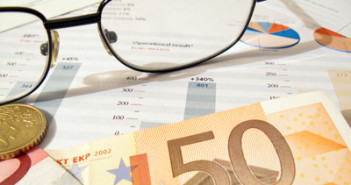EUR/USD remains steady, as the markets wait for today’s developments out of Brussels. The ECB will set its Minimum Bid Rate and is also holding a press conference following the rate announcment. The ECB is expected to hold rates at 0.75%. On Wednesday, there were mixed numbers from key US releases. ADP Non-Farm Employment Change fell below the estimate, posting its weakest numbers in over a year. However, ISM Non-Manufacturing PMI rose slightly and was stronger than the market forecast. In today’s economic releases, Euro-zone Revised GDP dropped 0.1%, matching the market forecast. German Factory Orders jumped 3.9%, its highest gain since last December. In the US, today’s highlight is Unemployment Claims. The markets are expecting an improvement after a disappointing November release.
EUR/USD Technical
- Asian session: Euro/dollar was steady, as the pair consolidated at 1.3050. The pair is higher in the European session.
- Current range: 1.3080 to 1.3140.
Further levels in both directions:Â Â 
- Below: 1.3080, 1.3030, 1.30, 1.2960, 1.2880, 1.28, 1.2750, 1.2690, 1.2624, 1.2590, 1.25, 1.2440, 1.2390 and 1.2250.
- Above: 1.3140, 1.3170, 1.3290 and 1.34.
- 1.3080 is under strong pressure on the upside. 1.3140 is stronger.
- 1.3030 is the next line of support.
Euro/dollar steady as markets eye ECB rate announcement, policy meeting– click on the graph to enlarge.
EUR/USD Fundamentals
-
10:00 Euro-zone Revised GDP. Exp. -0.1%. Actual -0.1%.
- 11:00 German Factory Orders. Exp. +0.9%. Actual 3.9%.
- 12:30 US Challenger Job Cuts.
- 12:45 ECB Minimum Bid Rate.
- 13:30 ECB Press Conference.
- 13:30 US Unemployment Claims. Â Exp. 378K.
- 15:30 US Natural Gas Storage. Exp. -70B.
For more events and lines, see the EUR/USD
EUR/USD Sentiment
- Euro rally stalls: After three strong weeks, the euro has levelled off. Despite often sluggish economic data out of the euro-zone, the euro has enjoyed recent success against the US dollar. However, After three strong weeks, the euro has levelled off. Is the rally over, or are we seeing a pause before further gains? The Greek debt agreement appears to be holding up, and if aid starts to flow again to Greece, the euro could push higher. A lot depends on the fiscal crisis in the US – if the crisis worsens, EUR/USD could suffer as investors seek the safety of the greenback.
- Debt deal moves forward as Greece initiates buy-back: Greece has offered to purchase 10 billion euros of its national debt, as part of the new bailout agreement aimed at resolving the country’s severe debt crisis. Market sentiment was positive after the Greek government offered a premium on markets prices for Greek bonds. The EUR 10 billion buy-back could allow Greece to retire up to EUR 30 billion worth of debt. Greece is expecting the next installment of aid on December 13, and the buy-back is scheduled to be completed by December 17. In a sign that public declarations are not engraved on stone, German Chancellor Angela Merkel hinted that Berlin could consider a write-off of its Greek loans. Germany has strenuously objected to such a haircut, but may have to show more flexibility if Greece is to stand on its financial feet. However, Merkel is unlikely to agree to a debt haircut, in any shape or form, prior to German elections in 2013.
- Spain posts positive data: It’s been a good week for Spain, at least as far as economic releases are concerned. The Spanish treasury raised 4.251 billion euros in a bond auction on Wednesday. The average yield on 10-year bonds fell to 5.29%, down from 5.52% in November. With these positive numbers, the government may feel it can continue to forgo an aid package. Just last week, Spain tapped into a bailout for its banks, as it requested the ESM to transfer about 40 billion euros money to Spain’s banking authority FROB. These funds will be add to Spain’s national debt. The country also posted a rise in Services PMI and a healthy drop in unemployment claims. However, Spain is grappling with an economic recession, and may have to resort to a rescue package sometime in 2013.
- German parliament gives nod to Greek deal: The agreement on Greece’s debt passed a major hurdle as German lawmakers overwhelmingly approved the deal, by a vote of 473-100. The agreement includes a debt buy-back scheme and an interest rate cut on loans to Greece. The approval by the German parliament clears the way for Athens to finally receive the 44 billion euro bailout package agreed to by the troika.
- US lawmakers spar over fiscal cliff: Republicans and Democrats continue to battle hard over the looming fiscal cliff crisis. The Democrat proposal calls for $1.6 trillion in additional taxes over the next 10 years, with higher taxes on those earning over $250,000. The Republicans have offered $800 billion in new tax revenue from spending cuts and overhauling the tax code. However, the Republicans are split on whether to agree to higher income tax rates, and the Democrats, led by President Obama, could take advantage of the disarray in the Republican camp. The markets are hoping that the politicians will find a compromise and avoid a crisis which could threaten the fragile US recovery. Both parties are likely to continue talking tough for a while yet, as the fiscal cliff clock ticks louder every day.



